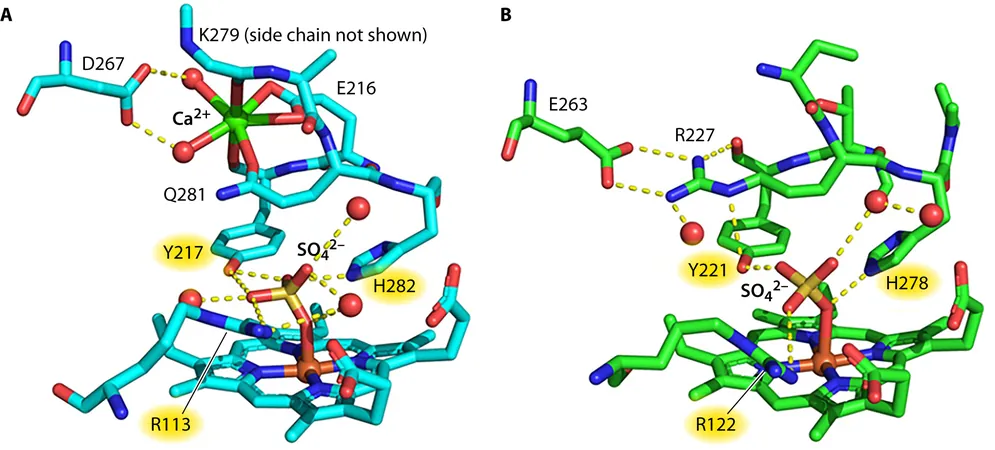
Revolutionary Soil Enzyme Could Transform Farming and Protect Waterways
2025-06-09
Author: Daniel
A groundbreaking discovery by a team from Michigan State University could change the way farmers use nitrogen fertilizers, making them more effective while simultaneously protecting our waterways. Their focus? A tiny but mighty enzyme known as NrfA.
Led by Eric Hegg, Dean of the College of Natural Science, this study compiles years of vital research that highlights how NrfA could help retain nitrogen in the soil, drastically reducing fertilizer runoff that contributes to toxic algal blooms.
Ph.D. candidate Krystina Hird, the study's lead author, emphasized the dual benefits of understanding NrfA. Not only might farmers cut down on harmful impacts to aquatic ecosystems, but they could also see significant savings in fertilizer costs.
The problem at hand is that nitrogen, an essential nutrient for all life forms, is often washed away due to its negative charge, which repels it from the similarly charged soil. This leads to an influx of nitrogen in lakes and rivers, resulting in dangerous algal blooms.
Ammonium, a positively charged form of nitrogen, is particularly desirable in agriculture because it stays put in the soil. However, it frequently gets converted to nitrite by soil microbes, leading to more losses.
Enter NrfA; this enzyme excels at converting nitrite back into ammonium while also moving and storing electrons more efficiently than other enzymes. Its effectiveness could have a profound impact on farming practices.
Hegg's team has not only reviewed existing research but aims to make it accessible for students entering this complex field. Hird expressed her excitement about helping future researchers understand the intricacies of nitrogen management.
Practical applications of their findings are on the horizon. Farmers can leverage these insights to choose optimal nitrogen fertilizers, and future studies may explore how to strategically introduce NrfA-containing bacteria in areas where runoff is most likely.
Looking ahead, Hegg's team is set to investigate the precise mechanisms of how nitrate becomes ammonium through NrfA, aiming for a deeper understanding of this rapid process. Hird warns, "It’s like delicate surgery, as slowing down such a quick reaction can destabilize it."
This research promises not just to enhance agricultural efficiency but also to safeguard our vulnerable water systems from the extensive impacts of fertilizer runoff.



 Brasil (PT)
Brasil (PT)
 Canada (EN)
Canada (EN)
 Chile (ES)
Chile (ES)
 Česko (CS)
Česko (CS)
 대한민국 (KO)
대한민국 (KO)
 España (ES)
España (ES)
 France (FR)
France (FR)
 Hong Kong (EN)
Hong Kong (EN)
 Italia (IT)
Italia (IT)
 日本 (JA)
日本 (JA)
 Magyarország (HU)
Magyarország (HU)
 Norge (NO)
Norge (NO)
 Polska (PL)
Polska (PL)
 Schweiz (DE)
Schweiz (DE)
 Singapore (EN)
Singapore (EN)
 Sverige (SV)
Sverige (SV)
 Suomi (FI)
Suomi (FI)
 Türkiye (TR)
Türkiye (TR)
 الإمارات العربية المتحدة (AR)
الإمارات العربية المتحدة (AR)